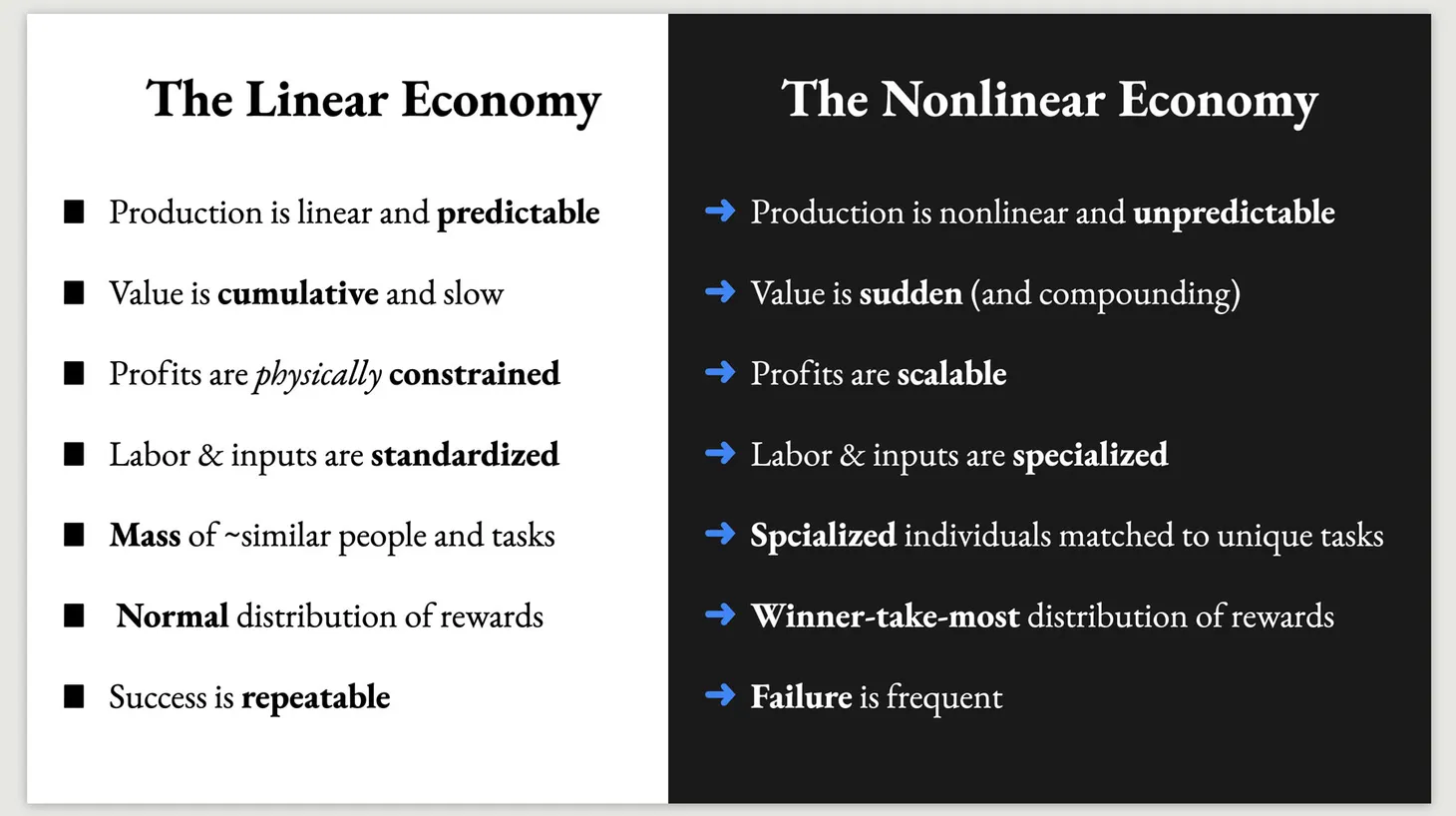The Office Prisoner's Dilemma
Once some companies embrace remote work, all companies are forced to embrace remote work.

Consider the following game. James and John are being interviewed by a fast-growing company. Both of them would like to have the freedom to work remotely whenever they choose. Each of them negotiates his terms of employment without communicating with the other.
The company's official policy is that all employees must be tied to their office desks from 9-to-5 every day. If both candidates insist on working remotely, both of them would be allowed to. If one of them agrees to be tied to a desk, the other one would also be forced to work in this way.
Simultaneously, the company offers each of the candidates a bargain: Get hired immediately if you betray the other and agree to be tied to a desk. The two candidates have the power to change the company's policy, but they do not know it. They also assume that all other major companies would follow the same procedure.
The possible outcomes are:
- If James and John betray each other, they both end up tied to their desk.
- If James agrees to the bargain, but John doesn't, James will be tied to his desk, and while John will remain unemployed (and vice versa if John agrees and John doesn't).
- If James and John both insist on working remotely, both of them would be allowed to work remotely.
What is the most likely outcome?
Both employees will betray each other and end up tied to a desk. A rational, self-interested candidate would choose to betray the other. Betrayal offers a guaranteed reward (getting hired immediately). Both candidates would like to work remotely, but they assume that it is not an option and so the best thing to do is conform and get hired.
The company in this game is not evil or arbitrary. It insists on tying employees to their desk because it believes that this is the only way to train, manage, and motivate them. The company is afraid that loosening its policy would make it less competitive than other firms. For the same reason, all other companies in that market also insist on tying employees to their desks.
Then something happens.
A global pandemic forces all companies to let their employees work remotely. And... business continues as usual. Some employees complain about the lack of childcare or poor management, some managers complain about the difficulty in keeping track of employees, but overall — work gets done.
As they feared, some companies end up less productive. But many others realize that they are equally productive, especially when they adopt new tools and management methods. In addition, some companies use this unique opportunity to hire specialized employees in different locations. These specialized employees were previously not available to be tied to a local desk. Having access to a broader pool of talent ends up offsetting most of the "cost" of allowing employees to work remotely. In some cases, access to specialized skills even leads to unprecedented productivity gains.
The employees themselves realize that there are now multiple companies who would hire them even if they insist on working remotely, at least part of the time.
The game has changed forever. James and John are better off. For now.
___
P.S.
We are accepting registrations for the April cohort of the Future-Proof Office Course, and we just launched a brand new Future-Proof Housing Course. If you are building, designing, financing, operating, or innovating in the built world — you'll have a great time. Participants also get to connect with our alumni community around the globe. Join us!
Dror Poleg Newsletter
Join the newsletter to receive the latest updates in your inbox.




